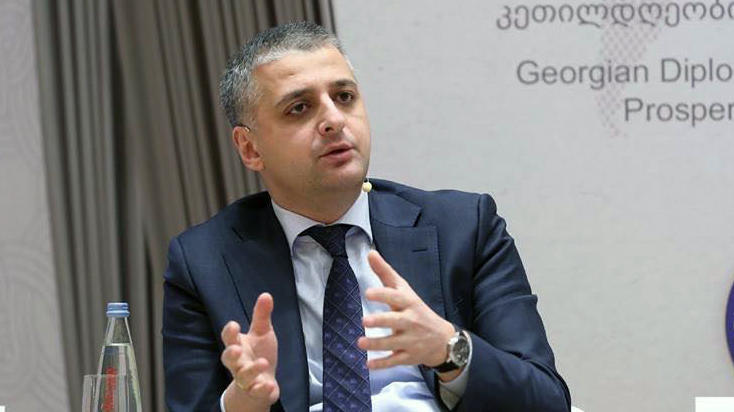Bit of advice from Estonia’s former Foreign Minister
As Georgia replaced its foreign minister, announcing a shift towards to a more economy-oriented foreign policy, the country’s major quest - that of EuroAtlantic integration - remains sacred. It was exactly Georgia’s EuroAtlantic future that we asked Estonia’s former foreign minister and one of our country’s biggest fans, Urmas Paet, to share his insights on in this brief interview.
– As the crisis in Ukraine shows no signs of ending in foreseeable future, we see more and more opinion makers and experts admitting with regret that back in 2008, when Russian-Georgian war occurred, there was an oversight on the part of the West and had it been more active, it wouldn’t have to face the Ukraine crisis today. Do you share this notion? And if yes, what could have been done?
– Of course, there is a pattern. What we saw in Georgia, we see now in Ukraine and in other post-Soviet countries, too. And of course, the West could have done more back in 2008. For instance, there could have been sanctions. But frankly speaking, I am not sure that even if the West had been more active and harsh back then, the crisis in Ukraine could have been averted. The policy of the Kremlin is to prevent post-Soviet countries from getting closer to the West, to Europe. This has been the case with Georgia in 2008, and this is the case with Ukraine now.
– Let’s talk about the experience gained in post-Soviet era. Obviously, the Baltic countries are now in a more secure position than Georgia and Ukraine. To what would you attribute your success in regard of Euro-Atlantic integration? And it’s not about just NATO, is it? What’s the secret of Talinn? How did a country whose capital city is in mere 50km from St. Petersburg, manage to survive? What can we learn from that?
– For us, I think the major impetus was that our society was very united and determined in the 90s and it remains so today as well. We did not doubt ourselves – we wanted our independence, and we wanted to be as
close to the West as possible. And we fully acknowledged that to achieve that we needed reforms – governmental, social, economic ones, you name it – to get as far away from our Soviet past as possible. I should also mention that this goal was shared by other Baltic countries and that Europe gave us significant support in achieving it. Combination of all these elements made it possible for us to join the European Union and NATO in 2004 and brought us to where we stand today. In short, we did our homework.
– Good thing you mentioned that word – homework. Georgia keeps doing them over and over again, yet, metaphorically speaking, there is still no graduation exam in sight. Would not you agree that there is more at hand than just a properly done homework?
– Of course. There is also geographical proximity at play, for example. To be very blunt, just look at the Article Five of the NATO charter – it a determining factor in NATO enlargement. Member countries, all of them, should be ready to go to war for a fellow member state. And that means there is a lot of consideration before new members are admitted. But it doesn’t mean that this undermines the importance of aforementioned “homework” - a state without functioning democracy can not become a member.
– Regardless of their NATO membership, the Baltic countries still maintain that there is a threat coming from Russia. What’s your strategy? What are you counting on?
– It needs to be emphasized that any conflict with Baltic countries would mean a conflict with NATO. It would be a completely different situation if Estonia, Latvia or Lithuania weren’t NATO members, of course. So we have faith in that.
Author: Vazha Tavberidze
